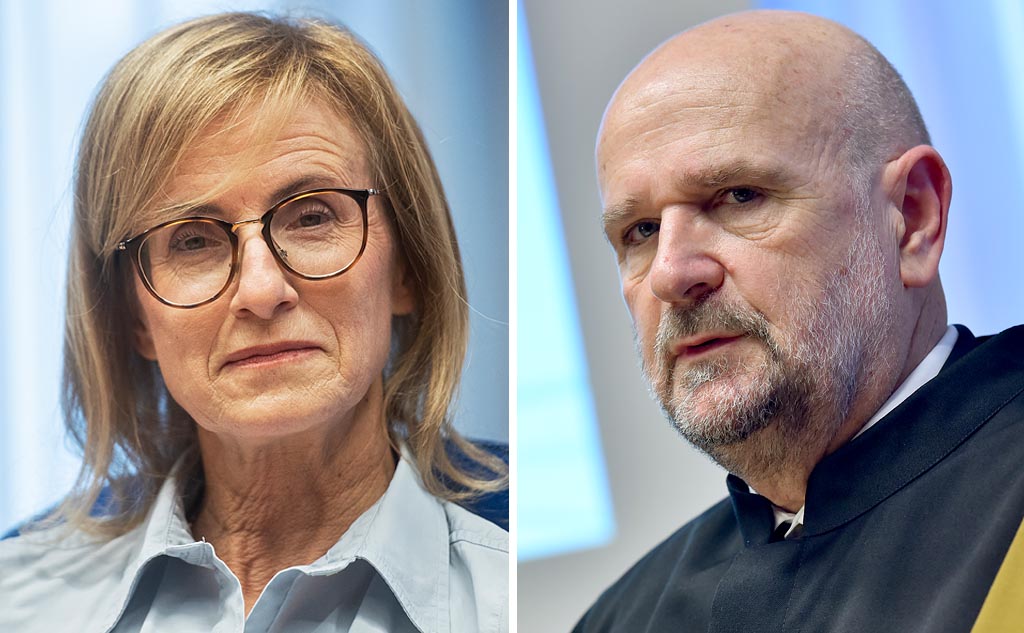By: Ivan Šokić / Nova24tv
These days, the Supreme Court of the Republic of Slovenia pointed out that, according to European barometer surveys, trust in the Slovenian judiciary is noticeably higher than in 2016, and emphasised that on the other hand trust in the government and parliament went to the dogs. To substantiate their claim, they did not compare the 2016 data with the latest opinion polls, but only pasted a graph. However, the data show that more participants in the Eurobarometer poll in 2021 trust the center-right government of Janez Janša than they trusted the left wing government of Miro Cerar. The results of the polls also show that there are no more undecided people in Slovenia, and the vast majority of them have expressed confidence in the government. As many as 75 percent of those who did not know five years ago whether they trusted the government or not said they trust the government according to the latest opinion polls.
“We are pleased that some of those most responsible for the situation in our country are concerned about the performance of the Slovenian judiciary, but the statistics are different, many also show a noticeable improvement in public confidence in the judiciary, which has risen by more than 50 percent in the last five years,” they announced on the official Twitter profile of the Supreme Court of the Republic of Slovenia, where they compared the results of the Eurobarometer on trust in the judiciary in Slovenia in 2016 and 2021. Vinko Gorenak wrote that reputation must be earned. “You need to gain a high reputation through an independent and fair trial. So look at the last example of Janković…. obsolescence. Or a trial and conviction for an act that is not KD in the case of JJ… decision of the Constitutional Court.”
They went on to comment on the two graphs of Eurobarometer polls on confidence in the Slovenian government and parliament from 2021. “Obviously, the judiciary also bears the weight of general distrust in institutions. We can ask ourselves to what extent the often disrespectful attitude of the representatives of the other two branches of government towards the courts and the constant demolition of all positive achievements contribute to this.”
It is a shame to allow the Supreme Court to manipulate data. The confidence of Slovenian respondents in the parliament and the government has never been really high, but compared to the data from 2016, the confidence in the work of the government in 2021 is higher than in 2016. In 2016, 16 percent of respondents trusted the Slovenian government, 80 percent did not trust it, and 4 percent did not know whether they trusted it or not. In the 2021 barometer, 19 percent of respondents trusted the government, but 81 percent did not. There were no undecided people in 2021. The total is thus definitely in favour of the government.
On the other hand, according to Eurobarometer data from 2016, 12 percent of respondents trusted the Slovenian parliament, while 83 percent did not. 5 percent of respondents did not know whether they trusted the Slovenian parliament. After five years, the results of the survey show that 15 percent of respondents trust the Slovenian parliament, and 85 percent are distrustful. The total shows that the government gained 3/4 of the draws compared to the results, while the ratio of the undecided in terms of trust in the parliament is only 3:2.
In 2016, the government of Miro Cerar was in power, consisting of SMC, DeSUS, and SD. Among other things, the parliament then voted to illegally revoke the parliamentary mandate of SDS President Janez Janša. The Constitutional Court later annulled the decision of the National Assembly and returned the mandate to Janša, as the law on MPs, which was referred to in the National Assembly, was unconstitutional.
If anything, the results show that respondents in Slovenia no longer remain undecided, but can clearly say whether they are for or against. The Prime Minister himself also responded to the records of the Supreme Court. “Exactly the same argument as in 1988 at the Yugoslav People’s Army. You see, the public doubts the immaculateness of the famous army because some celebrities need to publicly criticise it (these were then arrested and imprisoned). We all know how that misrepresentation ended,” Janša wrote, recalling the JBTZ affair. “The authors are the same as today,” the Prime Minister added, concluding with the hashtag “Bavconovi”.
The full surveys with graphs of confidence in politics can be viewed at the following web links: Standard Eurobarometer 85 – Spring 2016, Standard Eurobarometer 94 – Winter 2020-2021, and in the judiciary on Perceived independence of the national justice systems in the EU among the general public for year 2016, and Perceived independence of the national justice systems in the EU among the general public for year 2021.
